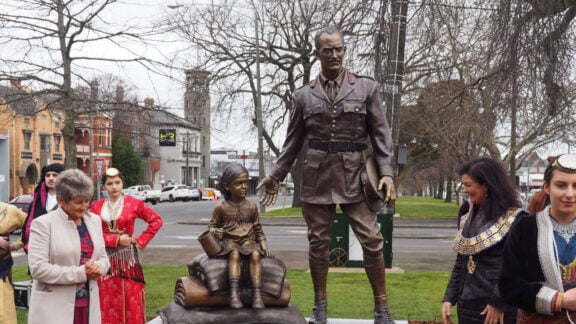In the eastern Mediterranean, the island of Cyprus stands as a scarred monument to international inaction — a place where the lofty promises of the United Nations crumbled under the weight of geopolitics and neglect.
In 1974, Turkish troops invaded the sovereign Republic of Cyprus, ostensibly to protect the Turkish Cypriot minority following a coup supported by the Hellenic military junta. But what began as a so-called “peace operation” became an illegal and prolonged military occupation. Over 40,000 Turkish troops remain in the north to this day, and one-third of the island’s population was displaced in the conflict’s aftermath.
The United Nations responded — on paper. Resolutions were passed, including UNSC Resolution 353, which demanded the withdrawal of foreign troops and respect for Cyprus’ sovereignty and territorial integrity. Yet, some five decades later, these resolutions remain unenforced, mere words fluttering in the archives of failed diplomacy.
Instead of accountability, there was paralysis. Instead of justice, compromise. The buffer zone that cuts across Cyprus, patrolled by UN peacekeepers, became a line of frozen failure — a silent witness to the international community’s unwillingness to confront Turkey’s extraterritorial ambitions.
The division of Cyprus is not just a local issue. It represents the broader erosion of international law when confronted by military might and strategic alliances. Turkey, a NATO member and key regional actor, has pursued not only territorial control in Cyprus but energy exploration in its maritime zones — all while the world watches, divided or indifferent.
Cyprus, a member of the European Union, remains the only nation in the EU with occupied territory, and yet the United Nations has offered no real mechanism to reverse the occupation, no meaningful consequences for defiance — effectively endorsing Turkey’s continuance on this once peaceful island. Peace talks come and go. Promises are made. And still, the north remains under occupation, its churches desecrated, its history rewritten.
The failure of the United Nations to act decisively in Cyprus is more than a diplomatic shortcoming. It is a betrayal of its very charter — the promise to safeguard peace, protect sovereignty, and defend the weak against the strong.
Cyprus needs justice. The nations of the world, starting with the UN itself, must find the courage to say what it has long avoided: that illegal occupation is not peace, and appeasement is not diplomacy.
Until then, the ghost of Cyprus’s divided capital, Nicosia, will stand as a damning symbol — not of ethnic conflict, but of international failure.
Meanwhile, Turkey has deepened its military, economic, and demographic footprint in northern Cyprus, including through settlement policies in violation of international law. The UN has issued statements, passed resolutions, and hosted summits — but failed to act with decisive authority.
This ongoing occupation challenges the very credibility of the United Nations. If a small, independent nation like Cyprus can be invaded and partially annexed without meaningful consequence, what does that say to other nations vulnerable to similar aggression?
The legacy of the UN in Cyprus is not one of peace, but paralysis. And the cost has been borne by Cypriot families — both Greek and Turkish — who have suffered displacement, division, and decades of uncertainty.
The United Nations must assert its moral authority. Empty declarations must be replaced with firm action, and member states must stop hiding behind geopolitical convenience. Justice, as enshrined in the UN Charter, cannot be selective.
Cyprus is not just a European issue. It is a test of whether the international community truly believes in sovereignty, justice, and human rights — or whether those values are only upheld when politically convenient.
Until justice is restored and Turkish troops are withdrawn, the United Nations must answer to history for its failure in Cyprus.









